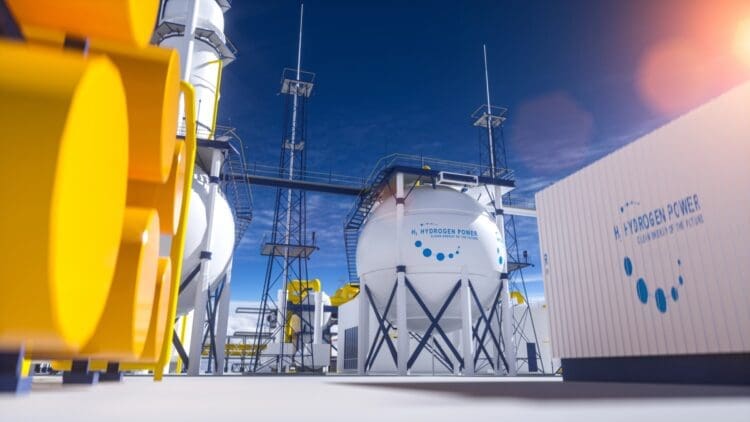A recent report has eyed the overwhelming potential for green hydrogen cooperation in Central Asia. The region has lagged behind the rest of the world in the adoption of the renewable energy sector, and this new development fosters international cooperation that could catapult green hydrogen into the global energy conversation. The new report comes to us from H2-diplo and is called the “Green Hydrogen and Regional Cooperation in Central Asia” study. It aims to develop green hydrogen possibilities for nations in Central Asia.
The report highlights the role that green hydrogen could play in transforming the energy sector in Central Asia
The world has embraced the potential that the green hydrogen sector has in troves and has implemented measures to develop the technology enabling us to finally make use of green hydrogen in the energy sector.
Despite Central Asia’s untapped wind and solar potential, renewable energy accounts for 2% of energy generation in the region as of 2022. Green hydrogen could alter that percentage significantly, as the report states.
Despite the overwhelming global narrative that has emerged recently, calling for a more practical approach to the hydrogen sector, most nations in Central Asia have not been able to take advantage of the new approach to the energy sector. The report calls for significant investments from international bodies that could foster growth for the hydrogen sector in the region.
Kazakhstan recently hosted the second Central Asian Regional Forum on Decarbonization Diplomacy
Kazakhstan is the Central Asian nation leading the push to integrate the hydrogen sector into its plans for the future of the energy sector. The event in Astana saw more than 150 participants from the government, international organizations, business, academia, and civil society.
Among the topics discussed at the Central Asian Regional Forum on Decarbonization Diplomacy were:
- National hydrogen roadmaps
- renewable grid integration
- inclusivity and investment conditions
- Regional certification for a trusted hydrogen market
Exemplifying international cooperation is key to the Central Asian region, as proven by the signing of a cooperation agreement between the Kazakh Ministry of Energy and the German Hydrogen Diplomacy Office, which happened at the event. Green hydrogen has come exceedingly far in a very short time frame as certain European nations aim to boost aid for green hydrogen and ammonia-powered ships.
Among the high-level government attendees was none other than Kazakhstan Deputy Foreign Minister Arman Issetov, who delivered the opening address.
“This gathering comes at a crucial time across the globe. The energy transition is no longer a distant vision for Central Asia. This transition is not just about reducing emissions. It is about economic resilience, regional stability and global relevance. When we talk about energy transition, a key question arises: who will drive this process? It is about people ready to bring the green strategy to life. (…) We believe that we have to invest in our human capital” – Kazakhstan Deputy Foreign Minister Arman Issetov
He also noted that by fostering regional cooperation in training and research, Central Asia has the potential to dominate the hydrogen sector for the foreseeable future.
Central Asia is key to unlocking the potential that the green hydrogen and ammonia sector has stored away
As the world embraces the potential that the green hydrogen and ammonia sectors present, huge alliances are being formed that present massive opportunities to countries aiming to enter the green hydrogen market for the first time. The recent announcement by the H2Med alliance that it is adding 40 new members is a prime example. Hydrogen is the most abundant element in the universe and could solve all the problems faced by the global energy community. Central Asia is perfectly placed to become a major stakeholder in the sector.






